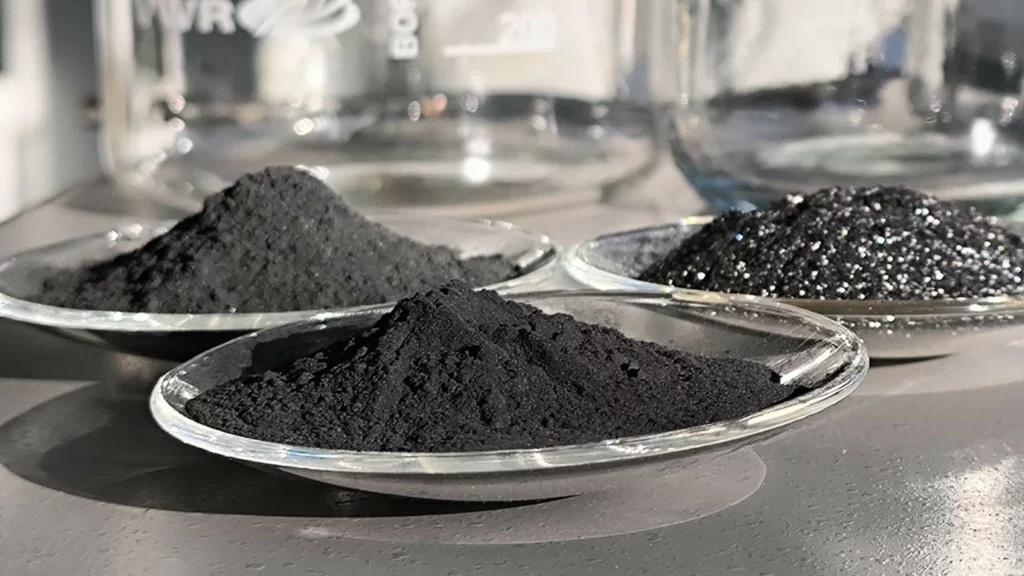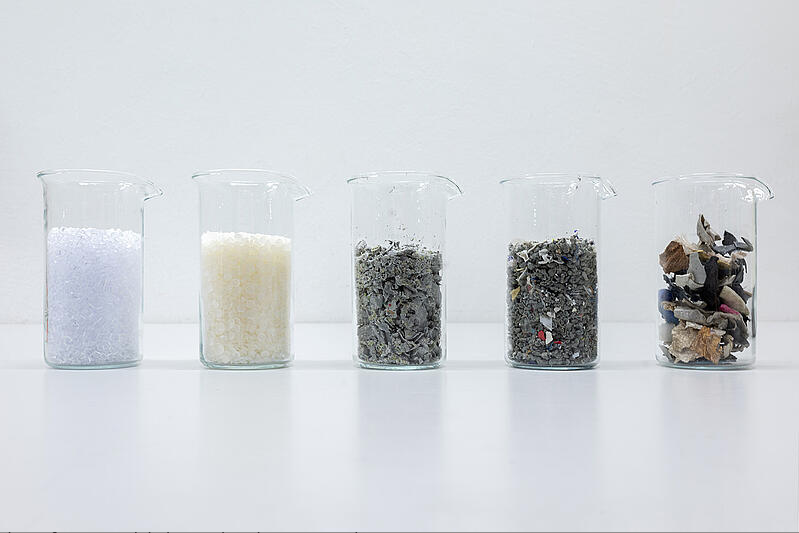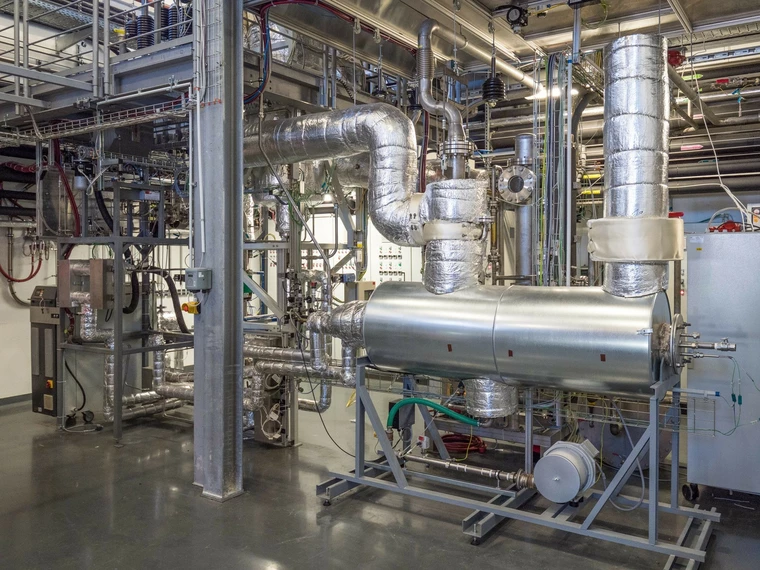From plastic waste to a sought-after raw material for battery technologies
New process enabling the development of alternative carbon sources
The Centre for Solar Energy and Hydrogen Research Baden-Württemberg (ZSW) recently launched the pioneering “CarbonCycle” project with a view to testing an innovative high-temperature process which will enable the thermochemical decomposition of previously non-recyclable processing and production residues from the plastics industry into a hydrogenated gas and a solid carbon fraction which can be used as a high-quality secondary raw material. The goal is to produce a high-purity carbon product on a pilot scale which, thanks to its structural properties, could be further processed into active materials for use in batteries. The project aims to replicate every link of the process chain right through to a battery on a laboratory scale. The close cooperation with industry partners will enable the rapid application of research findings in practice. The ZSW is in receipt of approximately € 1 million in funding from the Federal Ministry for Economic Affairs and Climate Action (BMWK) for the three-year project.
There is a need for swift action in developing new ways to ensure the efficient procurement of raw materials against the backdrop of growing global geopolitical tensions and increasing uncertainty in sustaining the supply of the resources relevant for Germany and Europe. This is particularly true in respect of the raw materials which are indispensable in the context of the energy transition. It is important at the same time to close material cycles in order to make a significant contribution to achieving greenhouse gas neutrality. Both aims are addressed in the CarbonCycle research project.
Thermal recycling is the method of treatment used today for a large proportion of plastic residues and plastic waste in Germany. The carbon contained in the plastics is converted into CO2 during the incineration process which then enters the atmosphere and contributes to climate change. At the same time, however, carbon is an essential component for modern-day batteries for electric vehicles, particularly in the form of graphite.

© ZSW
China accounts for approximately 80% of global graphite production. Graphite is listed as a critical raw material in the EU and the demand is set to grow because, according to estimates by the ZSW, the annual market for graphite alone for the ramp-up of electromobility will increase from the latest figure of just under 1 million tons to 3 to 4 million tons in 2030. The high-temperature rotary kiln thermolysis used in the CarbonCycle project therefore presents a great opportunity to establish resilient and efficient raw material cycles – and to do so with the goal of reducing CO2 emissions as far as possible.
In contrast to state-of-the-art plastic pyrolysis, the focus in high-temperature rotary kiln thermolysis is not on the production of pyrolysis oil, but on solid carbon. The scientists at the ZSW want to convert plastics under oxygen-free conditions at temperatures of up to 900°C, aiming to produce a solid, pure carbon fraction and a hydrogenated gas for the first time. The hydrogen-rich gas can potentially be used as a low-carbon fuel gas in industrial processes, similar to the product referred to as turquoise hydrogen from methane pyrolysis. Unlike methane pyrolysis, the process requires significantly lower temperatures, less energy, and no fossil natural gas as a raw material for the same end products – hydrogen and solid carbon.
Thermolysis tests with selected plastic fractions will be conducted on a laboratory scale at the ZSW in the initial stages of the project. The resulting carbon samples will be characterised in electrochemical tests with a view to battery applications and then processed and evaluated right through to the battery half-cell point. This will then form the basis for the implementation and validation of the thermolysis process at the ZSW on a pilot scale with a capacity of up to 5 kg of plastic per hour. Various tests will be carried out with a view to gathering major insights into carbon yield, carbon quality, hydrogen yield and energy consumption when using different waste fractions and to collecting fundamental empirical data on process control and the robustness of the components and materials used.

“Our aim in this project is to demonstrate that the recovery of carbon from existing industrial plastic residues is technically feasible and economically viable. We see this as a key contribution to achieving an EU-wide circular economy,” said Dr. Jochen Brellochs, research scientist in the department of Renewable Fuels and Processes at the ZSW. “At the same time, we will be tapping into a new carbon source which could at least partially replace the fossil carbon used until now,” added Brellochs.
The project covers every link of the process chain and involves all the relevant stakeholders, from the plastics industry as raw material supplier and the innovative high-temperature technology sector for the carbon product right through to the point of its immediate refinement and processing as a secondary raw material in battery production. A spotlight will also be shone on other important aspects, such as the development of recovery strategies, profitability analyses and the carbon footprint. The ZSW is working on the project in partnership with Akkodis. Enterprises granted associated project partner status are Südpack, Graf, Alleima and Schwenk. The long-term goals are to develop the relevant skills, to establish a broad base of expertise, and to transfer the technology to the private sector in line with the national circular economy strategy.

Source: ZSW, press release, 2025-04-29.
